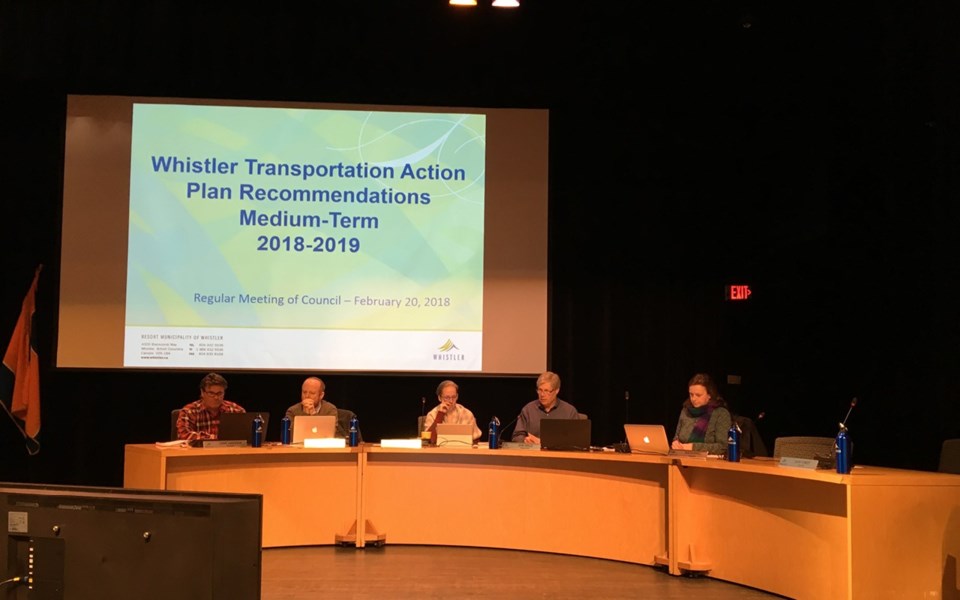Building on work done last year, the Resort Municipality of Whistler (RMOW) is moving forward with more transportation initiatives for 2018 and 2019.
But whereas last year's actions — which included things like pay parking in the day lots, free transit on summer weekends, bike valets and more — were largely under the control of the RMOW, moving forward will require more cooperation, said transportation demand management coordinator Emma DalSanto in a presentation to council on Feb. 20.
"(It's) much more about the partnerships and working with our partners on (the Transportation Advisory Group) and other stakeholders to move them forward," DalSanto said.
The recommendations — formed using feedback from the community forum in November — are broken down into five strategy areas: Highway 99 efficiencies, transit improvements, better parking management, active transportation options and "other."
Under Highway 99 Efficiencies, actions include working with the Ministry of Transportation and Infrastructure (MOTI) on a variety of fronts, including a study to find efficiencies and capacity improvements in Whistler, implementing higher levels of maintenance (like anticipating winter-weather events and proactively treating known problem areas like Nordic Hill, and targeting road-line painting for May/June), and looking at potential changes at Britannia Beach to address one of the corridor's major congestion points.
The RMOW will also work with Sea to Sky municipalities and the RCMP to implement findings of the Sea to Sky Highway Road Closure Protocol Assessment Report.
On the transit front, proposed actions include working on regional transit, queue-jumper lanes, better access to highway bus stops, new pass vendors in Creekside and Function, cheaper Spirit Pass prices and consideration for express and neighbourhood services.
On parking, the RMOW will monitor changes made last year to see if they can be improved, work on developing a parking app showing all available parking in Whistler, introduce multi-day parking passes and develop a carpool incentive, among other things.
Work will also continue on active transportation options like expanding secure bike parking, exploring Valley Trail lighting from Blueberry to Creekside and installing sidewalks in Function Junction.
Other proposed actions include exploring peak-time carpooling strategies to encourage more people to carpool to the ski hill, increasing end-of-trip storage (like ski and bike lockers), improving traffic signals on Highway 99 with state-of-the-art network signal systems, reduced transit fares year-round (including a possible free pass for Whistler students), and adding basic bus shelters at all highway bus stops.
A cost/benefit analysis will also be done to examine the feasibility of offering free transit year round.
Some unintended consequences of the 2017 actions — like parking spillover into neighbourhoods — are still being monitored.
"We have some time for discussion there," DalSanto said.
"So we'll have staff looking at it and TAG looking at it, and we will have some direction about what changes could come forward."
Find more info on the work of the Transportation Advisory Group at www.whistler.ca/movingwhistler.




